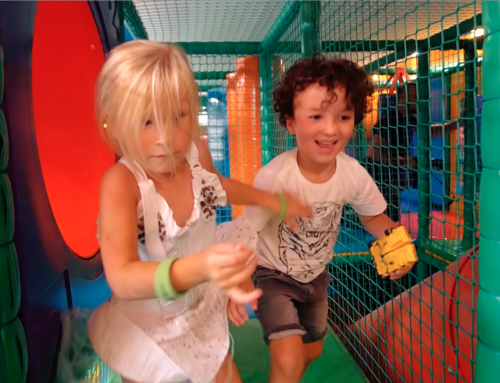The Power of Mindful Parenting: How Does it Work and What Are the Benefits?
As parents, we all want to create a nurturing and joyful environment for our children. We strive to be present, understanding, and responsive to their needs.
In today’s fast-paced world, parenting can sometimes seem overwhelming, leaving us feeling disconnected and unsure of the best approach to successful parenting. That’s where mindful parenting comes in. Mindful parenting is a conscious and intentional approach that allows us to be fully present, empathetic, and responsive to our children’s needs. In this guide, we will explore the principles and benefits of mindful parenting and provide you with practical strategies to incorporate this approach into your daily life.

What is Mindful Parenting?
Mindful parenting is the practice of being fully present and engaged in the moment with your child. It involves bringing awareness and attention to your interactions and emotions, without judgment or reactivity. Parents who are more mindful cultivate deeper connections with their children while promoting their emotional well-being and fostering a positive parent-child relationship.
The Principles of Mindful Parenting
- Presence and Awareness: The basics of mindful parenting begin with being fully present and aware of your thoughts, emotions, and sensations in the present moment. It means letting go of distractions and focusing your attention on your child.
- Non-Judgment: Mindful parenting involves observing your child’s behaviour without judgment or criticism. It’s about accepting your child as they are, with all their strengths and challenges.
- Emotional Awareness: The practices of mindful parenting encourage you to be aware of your own emotions and how they impact your interactions with your child. It’s about recognising and regulating your own emotions, so you can respond to your child with empathy and understanding.
- Self-Regulation: Mindful parenting techniques emphasise self-regulation, which is the ability to manage your own emotions and reactions. It’s about staying calm and composed, even in challenging situations, and modelling positive behaviour for your child.
- Compassion: By adopting mindful parenting strategies you cultivate compassion for yourself and your child. It’s about showing kindness, understanding, and empathy towards yourself and your child, even in difficult moments.

The Benefits of Mindful Parenting
Engaging in mindful parenting approaches benefits both parents and children. Let’s explore some of the positive outcomes that arise from practicing conscious parenting methods.
- Enhances Parent-Child Communication and Understanding
Mindful parenting improves communication and understanding between parents and children. By being fully present and attentive, you create a safe and supportive space for your child to express themselves. You listen actively, without judgment, and respond with empathy and compassion. This open and respectful communication deepens your bond with your child and helps you better understand their thoughts, feelings, and needs.
- Promotes Emotional Regulation and Well-Being
One of the key benefits of mindful parenting is promoting emotional regulation and well-being for parents and children alike. By being aware of your own emotions and responding to them in a calm and measured way, you model healthy emotional regulation for your child. This helps them develop their own emotional regulation skills, leading to improved self-control, resilience, and overall well-being.
- Cultivates a Positive Parent-Child Relationship
Mindful parenting fosters a positive and nurturing parent-child relationship. By practicing presence, non-judgment, and empathy, you create an atmosphere of love, acceptance, and understanding. This deepens your connection with your child and builds trust and mutual respect. A strong parent-child relationship is the foundation for healthy emotional development and overall happiness.
- Reduces Parental Stress and Overwhelm
Parenting can be stressful and overwhelming at times. Mindful parenting helps reduce parental stress by promoting self-care, self-compassion, and self-awareness. Being present in the moment allows you to let go of unnecessary worries and anxieties so you can focus on what truly matters. This leads to increased peace of mind, relaxation, and a greater sense of fulfilment in your parenting journey.
- Supports Conscious Parenting Methods
Mindful parenting aligns with conscious parenting methods, which prioritize the holistic development of the child and the cultivation of a strong parent-child connection. By practicing mindfulness, you become more attuned to your child’s needs, emotions, and developmental milestones. This allows you to respond to them in a way that promotes their growth, self-esteem, and overall well-being.
Successful Mindful Parenting Strategies
Now that we understand the principles and benefits of mindful parenting, let’s explore some practical strategies to incorporate this approach into your daily life.
- Practice Mindful Presence
Set aside dedicated time each day to be fully present with your child. Engage in activities together without distractions, such as playing, reading, or simply having a conversation. Focus your attention on your child and savour the precious moments of connection.
- Foster Emotional Awareness
Pay attention to your own emotions and practice emotional awareness. Notice how your emotions influence your interactions with your child. Take deep breaths and pause before responding during challenging situations. This allows you to respond with empathy and understanding, rather than reacting impulsively.
- Practice Self-Care
Taking care of yourself is crucial for practicing mindful parenting. Prioritise your own well-being by engaging in activities that recharge and rejuvenate you. This could include exercise, meditation, spending time in nature, or pursuing hobbies. When you take care of yourself, you have more energy and patience to be fully present for your child.
- Develop Mindful Listening Skills
Practice active and attentive listening when your child communicates with you. Give them your full attention, maintain eye contact, and validate their feelings. Avoid interrupting or rushing to provide solutions. Instead, create a safe space for them to express themselves fully.
- Foster a Positive and Nurturing Environment
Create a positive and nurturing environment for your child by modelling kindness, respect, and empathy. Use positive reinforcement and praise to encourage their efforts and achievements. Focus on their strengths and celebrate their uniqueness.
- Embrace Imperfection and Self-Compassion
Remember that mindful parenting is a journey, and no one is perfect. Embrace your imperfections and practice self-compassion. Be gentle with yourself when you make mistakes and learn from them. Treat yourself with the same kindness and understanding you would extend to your child.
- Prioritise Quality Time
Make quality time with your child a priority. Engage in activities that promote connection and bonding, such as family outings, shared hobbies, or designated one-on-one time. Create rituals and traditions that strengthen your bond and create lasting memories.
- Set Realistic Expectations
Set realistic expectations for yourself and your child. Recognise that children have their own unique pace of development and that there will be ups and downs along the way. Avoid comparing your child to others and focus on their individual growth and progress.
- Seek Support and Guidance
Don’t hesitate to seek support and guidance when needed. Connect with other parents who practice mindful parenting and share experiences and insights. Consider joining parenting support groups or seeking the guidance of a professional counsellor or therapist.
- Celebrate the Journey
Celebrate the joys and milestones of your parenting journey. Take time to appreciate and savour the precious moments with your child. Reflect on the growth and progress you and your child have made along the way. Embrace the beauty of the present moment and the gift of parenthood.
Conclusion
Mindful parenting is a powerful approach that allows us to create a nurturing and joyful environment for our children. By practicing presence, empathy, and self-awareness, we can deepen our connection with our children and promote their emotional well-being. Mindful parenting benefits both parents and children by fostering open communication, emotional regulation, and a positive parent-child relationship. By implementing practical strategies and embracing the principles of mindful parenting, we can create a harmonious and loving environment where our children can thrive. So, take a deep breath, embrace the present moment, and embark on the beautiful journey of mindful parenting with support from Intooit Kids Play Club.







Leave A Comment